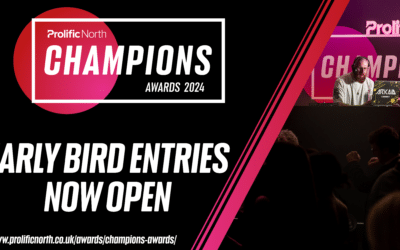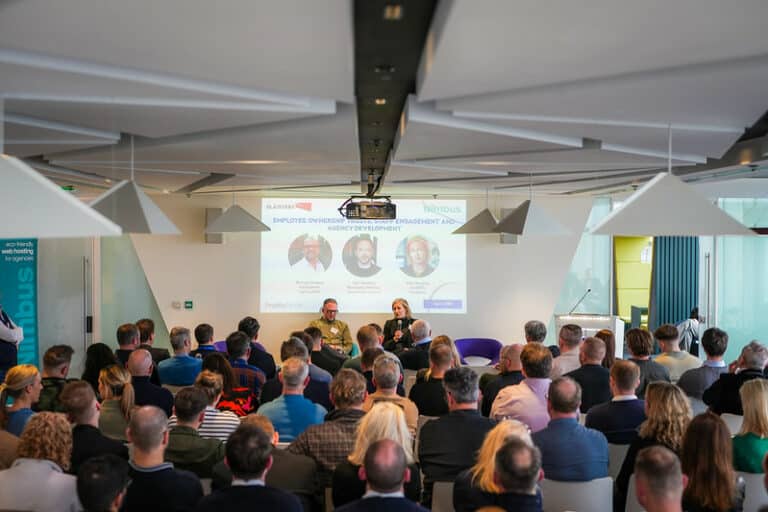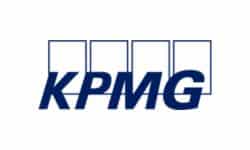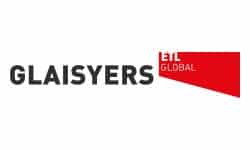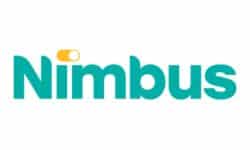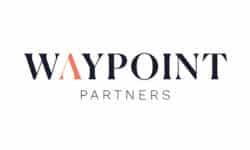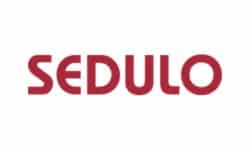With views overlooking the city skyline from KPMG’s Manchester office, Prolific North held a conference event filled with key takeaways for agency leaders looking to review, scale or sell their companies.
Hosted alongside headline partners KPMG, Glaisyers and Nimbus, the event on 29 February saw agency figures with decades of collective experience share their candid advice around selling, opportunities for growth, the importance of staff, preparing for investment, and managing risk.
Following a welcome from our host for the day Richard Gregory, co-founder at AgencyNXD, the event kicked off with a fireside chat between Mike Crook, managing director at Nimbus, and Michael Gibson, CEO at Fuuse and former managing director at Lancaster’s Fat Media.
During the session, titled Angel Investing, rethinking and reimagining your agency’s commercial streams, Gibson said leaders need to ask themselves if they really want to grow their agencies. Smaller boutique agencies in the sector are able to retain income for themselves and don’t have “all the pains that come with growing”, he explained.
Recurring revenues are key, which is why SaaS software businesses often have high valuations as they are able to evidence how they can grow, retain and maintain it. If leaders can turn agency revenues into recurring revenue, it will lead to “less headaches”.
When a company is on the hunt to buy an agency, there are a number of “important” factors they’ll be looking out for in you and your business. These include the agency business model, and if it is a relevant, robust, sustainable and scalable company.
Clients can have a big impact on revenues and it’s not sustainable if a client makes up more than 25% of an agency income or less than 1%. Having a solid bank of clients and prizing agency retainer income is crucial.
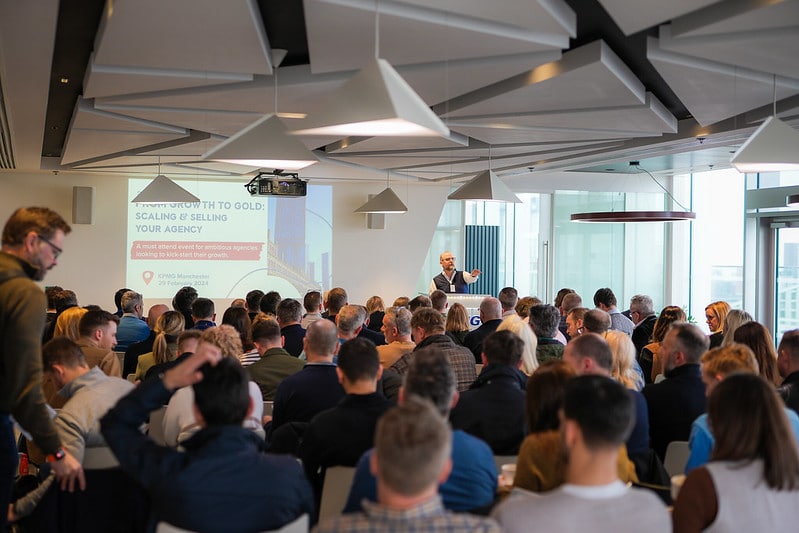
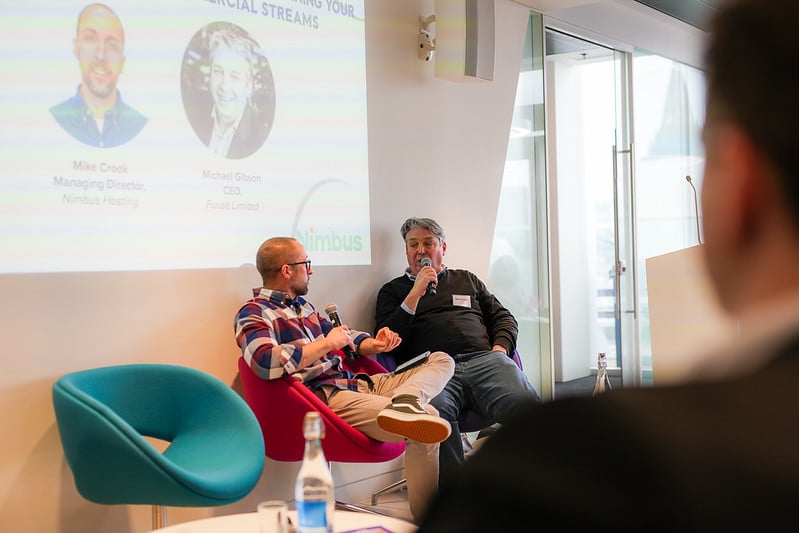
On financials, net operating profit is important. Although leaders should remunerate themselves “properly”, payroll should be no more than 60% of gross income and agencies should always ensure they have enough money in the bank. At Fat Media, he said the agency always ensured there was at least three months turnover saved which can offer “freedom to operate on rainy days”.
Agencies will be picked up quickly if they have a “sexy proposition”, able to showcase why they are compelling and different to pick up a “significantly higher valuation”.
If there’s IP within an agency that creates value to clients, you might be able to “really leverage” it and it may be something to explore developing as a product.
Considering selling your business? He said due diligence is vital, get a good M&A advisor in place with agency specialism. Prepare your agency for sale by making sure contracts and profitability is in place. But when do you involve the rest of the team in the process? Your finance team or CFO should be involved in the due diligence process from day one.
Employee Ownership Trusts, staff engagement & agency development
Next up, Gregory (AgencyNXD) introduced a special panel session on Employee Ownership Trusts with Dan Appleby, managing director at Drummond Central and Sam Gregory, co-CEO at Tangerine.
Gregory (Tangerine) said the agency has doubled in size since becoming employee-owned in 2017. After tax breaks came in to encourage EOTs, research discovered the benefits from an employee perspective. Tangerine was “breaking new ground” by becoming one of the first agencies to go through the process at the time, whereas now an increasing number of companies are opting to go through this transition.
“It’s working very well,” she explained. “As a business, it was always run a bit like an EOT and very up front and open, we shared business decisions with the team and were open about financial performance and goals.”
When it comes to recruiting it often is a reason why new staff join, while existing staff “feel the value”.
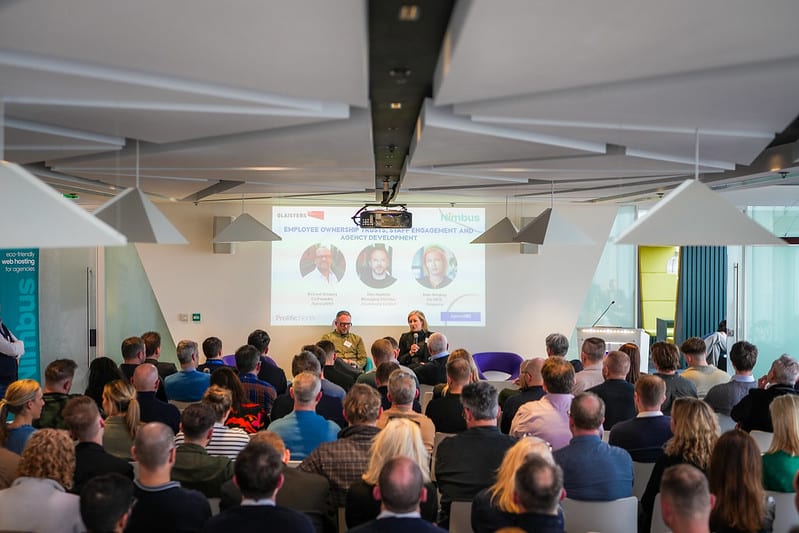
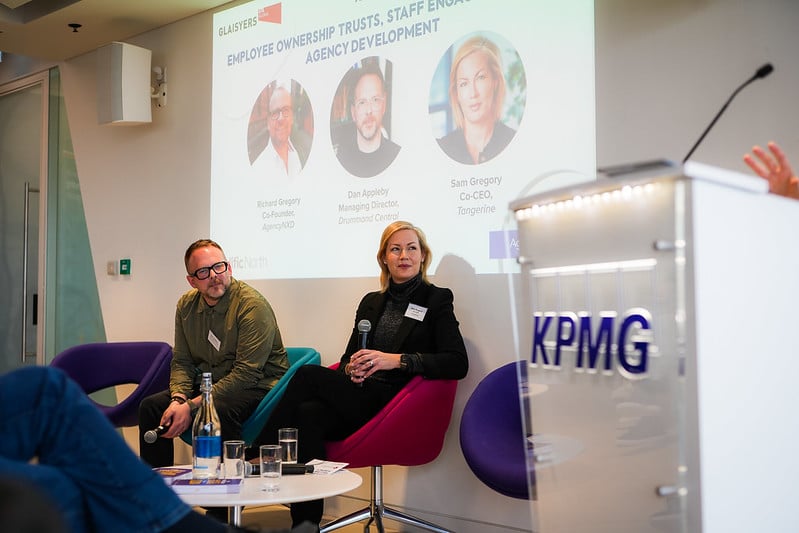
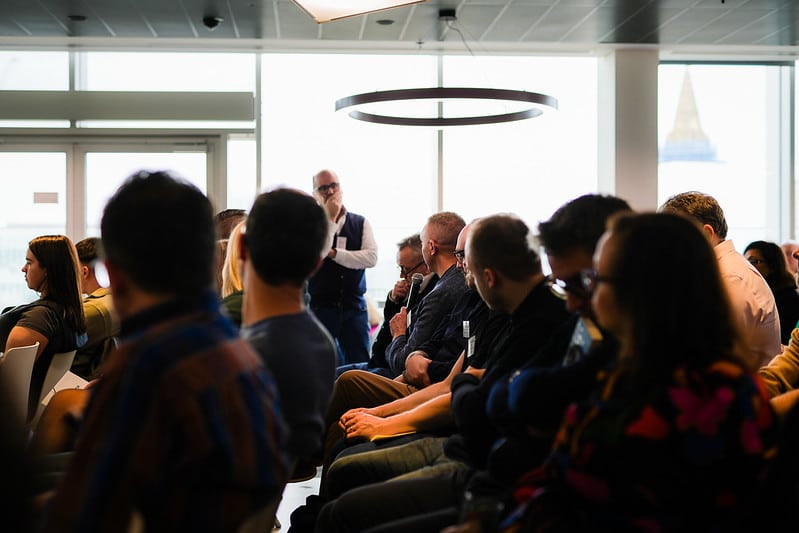
For Appleby (Drummond Central), moving to an EOT model last year worked for the founders over other options such as an MBO. Despite a number of offers to sell the agency, it didn’t feel like the right option for the agency’s founders who wanted to look after the people who played a big part in Drummond Central’s growth and success over the years.
Clients “love” that Tangerine is independent and it has made a “big difference”. Transitioning to an employee-owned company doesn’t mean the agency stops working to stand out, it becomes “more important”. But as a founder, you need to make sure it’s the “right decision for everybody”, added Gregory (Tangerine).
Over at Drummond Central, becoming employee-owned was a smooth process as the agency was already “running a tight ship”, says Appleby. If you don’t have rigour and business planning already in place, it will be difficult.
Governance is really important when it comes to an employee-owned business, he added, as there is a trustee board and key decisions are always ratified. Although becoming employee-owned has so far proved successful for both Tangerine and Drummond Central, the duo weighed up the pros and cons of different corporate models and said there’s no one size fits all approach for agencies.
M&A – the view from a network group on what interests them when considering an acquisition
For this dedicated talk on M&A, Waypoint’s director Gary Whyte was joined by Dean Lovett, CEO at McCann Central and chairman at McCann Manchester, plus Neil McKay, CEO at Endless Gain.
Whyte kicked off the discussion and said while deals still continued in 2023 there was a sense of “nervousness” around trading. Despite this, it’s where deal structures can “unlock a lot of value” long-term and now any business trading ahead of the market is “very attractive” from an acquisition perspective. There’s a big focus now on AI capability from an M&A perspective.
McKay (Endless Gain) said he first became involved in M&As when he helped build and sell Global Media to The Carlyle Group. Off the back of that deal, he spotted a strategic opportunity focused on the end goal to create, grow and sell Lakestar Media to McCann Worldgroup. The final stages of this strategy focused on securing one of McCann’s global clients at the time, as he knew it would pique theirs and their competitor’s interest.
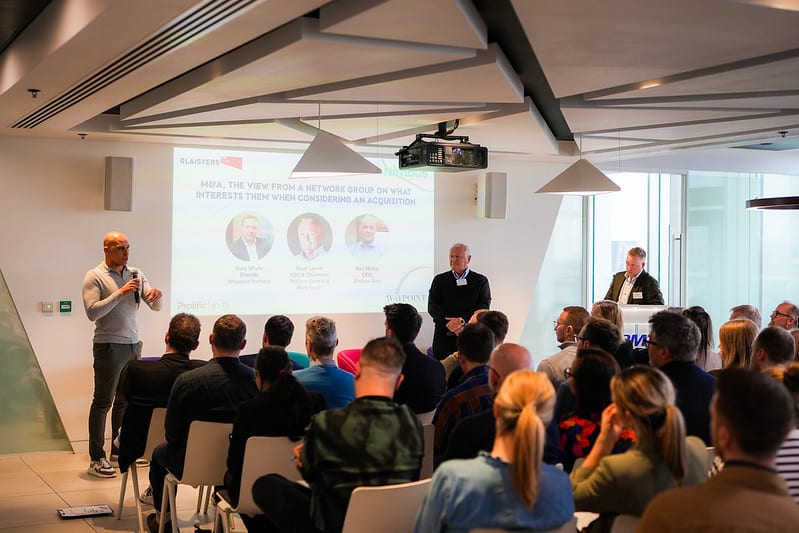
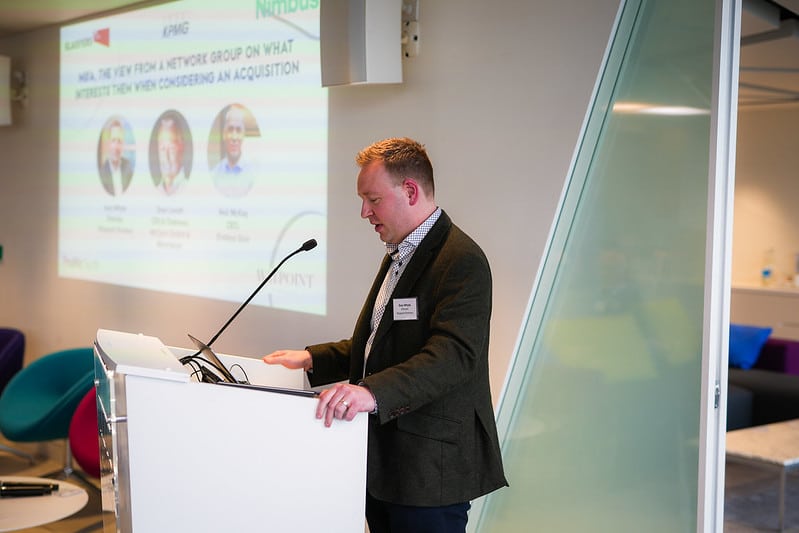
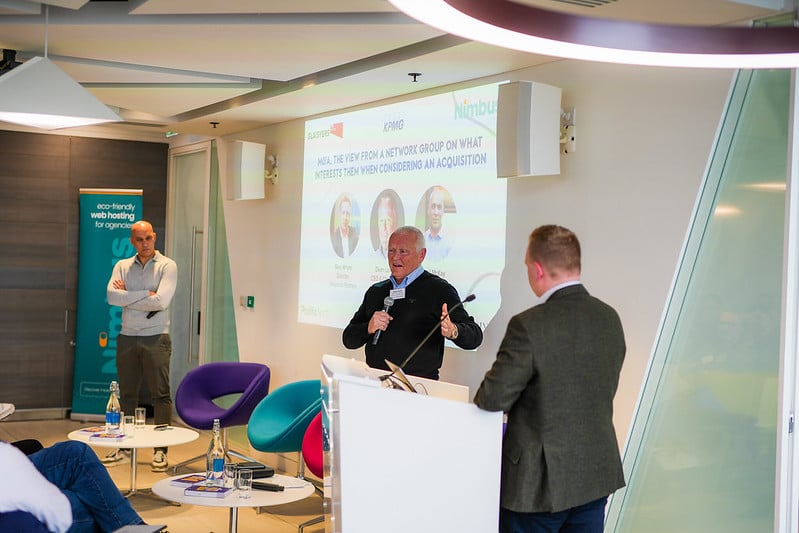
A year after McKay left Lakestar Media (after its acquisition by McCann Worldgroup), he set up a new venture called Endless Gain (CRO Consultancy). Again, investing his own money, he backed himself and his company to be a success. The seven-year journey had its challenges due to market immaturity, consolidation, and external factors (such as Brexit, recession, Covid) and proved to be “more difficult” than he expected it to be. He reflected on how he’s been “blessed and lucky”.
On 2 January 2024, Columbus, a global digital transformation consultancy, acquired Endless Gain.
Learning from his past experiences, McKay said when selling to global companies, independent agencies and their proposed new owners should focus a lot of effort on getting the balance right between the earnout and the integration. Both are equally as important. Other considerations to be mindful of are potential alignment challenges with new management and existing shareholders shifting focus.
Reflecting on the acquisitions he’s been involved in over the years, Lovett (McCann) said there have been a handful of “opportunistic” deals which are rare, typically it’s all about strategy. If you’re an agency looking to sell to groups like McCann, his advice was to try to understand what those groups like from a margin perspective.
When it comes to what’s crucial in a management team, acquisitive groups know early on if it’s going to work or not. It has to be a partnership with a “certain amount of compromise”. Getting to know that second tier management is key for a smooth transition, as even if you want founders to stay, plenty of them move on after a number of years.
Planning ahead, managing risk and realising opportunity
The following session was with Steve Kuncewicz, head of creative, digital and marketing at Glaisyers and Robin Skidmore, CEO at Journey Further, who tuned in remotely from New York.
Skidmore gave an overview of his impressive life and career journey. His “proper job” after university was at a web development agency in Leeds. It sparked the lightbulb moment behind launching Epiphany alongside friend Shane Quigley, with a focus on SEO.
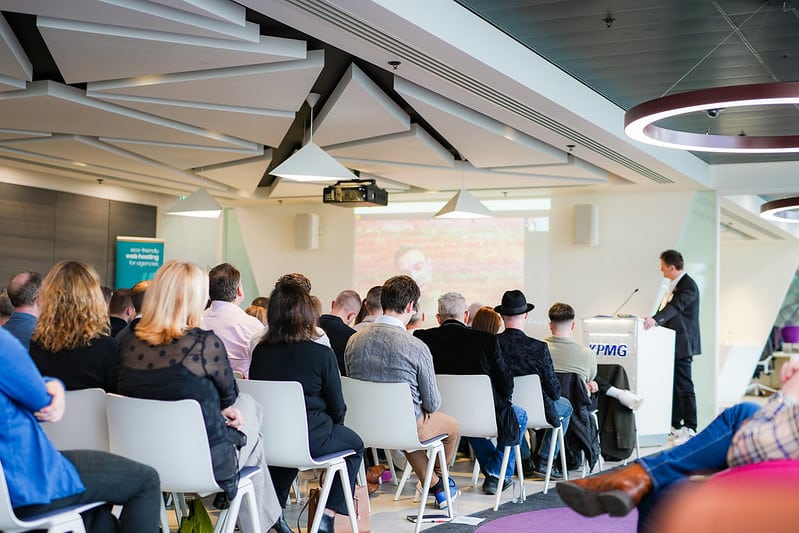
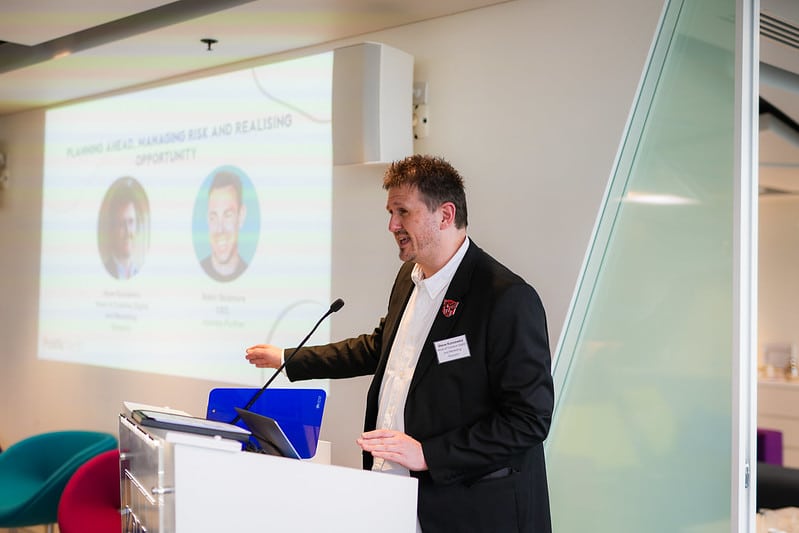
Building up a solid senior leadership team was key, when it came to presenting Epiphany to prospective sellers without the co-founders present, it was seen as a positive.
Post acquisition, he was 34-years-old with a 9-month child and decided to travel the world. Unsure of what to do next, he began investing in start-ups and even purchased a derelict pub but hated the “isolation of being a start-up founder”.
With a love of growing businesses he later set up Journey Further and by 2022, the agency achieved his turnover and profit goals. Now, the focus is international expansion.
He said success as most people see it is “never linear” and he has “learnt more from war wounds and failures than during those times of success”.
What gives him a “buzz” and what he believes is his “calling in life” is to create businesses that are people-first. Back at Epiphany, they initially had little resources and focused on hiring bright graduates to grow the agency into its success. While at Journey Further, assembling a team of “superstars” and a solid proposition helped with instant credibility and a company that brands wanted to work with.
While in the US, he’s noticed the big difference with the culture which is all about hiring and firing. But to Skidmore, investment in other companies is not just about the idea, it’s crucial to have the right people and a strong leadership team in place.
“Cash is king”
A dedicated panel session with agency leaders followed with Jess Brindle, portfolio finance director at Sedulo; Karl Loudon, CCO at Rise at Seven; Nicky Unsworth, former CEO at BJL; Rob Morrice, CEO at Stein IAS; and Richard Gregory, co-founder at AgencyNXD.
On what separates the good from the great, Brindle (Sedulo) said “cash is king” and agency leaders should always be forecasting and looking forward. Growth or exit plans all emerge from numbers so understanding them is key, as is a stable retainer income.
For the big motivations behind selling an agency, Unsworth said she did review other alternatives first. If founders care about their staff and clients, they need to plan a transition.
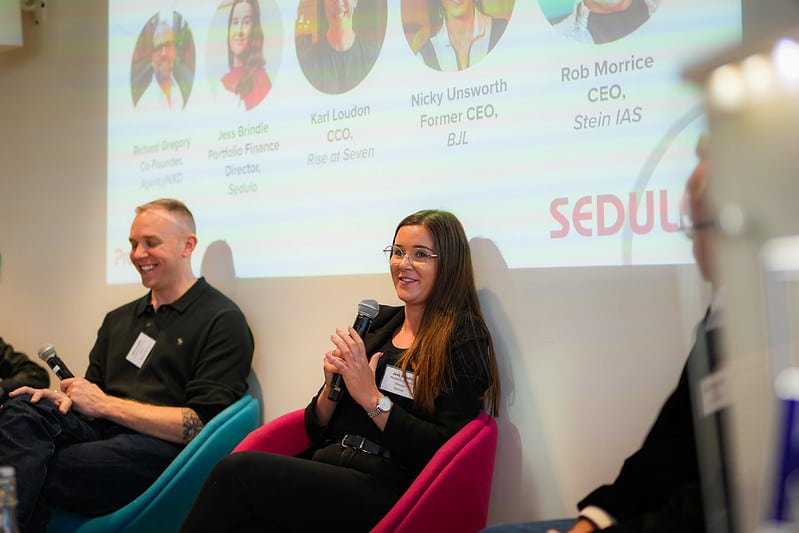
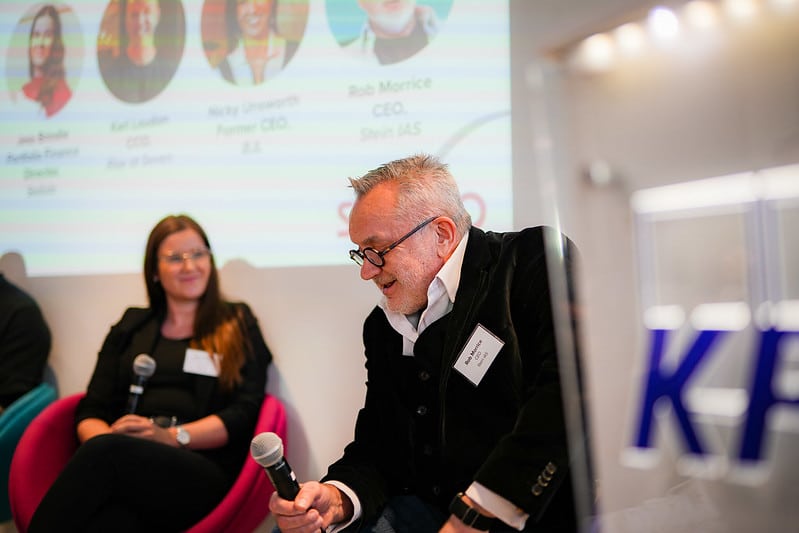
The sale of BJL to Dentsu initially stemmed from a conversation and it was a“strategic fit” where she felt there was opportunity for progression and to broaden the agency’s offer.
Drawing from his 20 years of experience across high growth start-ups, network agencies and global enterprises, Loudon (Rise at Seven) explained the importance of hiring the right staff when growing an agency, especially with people that align with the business.
Beyond the importance of numbers and KPIs, the panel also discussed the importance of having a good workplace culture and a people-first approach. Morrice (Stein IAS) marked his retirement at the event, reflecting fondly on his agency career. When it comes to staff, apprenticeship and in-house training schemes were beneficial. However, he advised there needs to be a balance with hiring talent and the growth of an agency.
For Loudon (Rise at Seven), the workforce now has “expectations none of us ever had before”. Rise at Seven has numerous offices and works to make sure it unifies culture and leads by example. Having an ‘All hands’ meeting is now more important than it ever has been.
Although remote working may have posed its challenges for some, agencies generally understand the value of culture, said Unsworth. When heading towards an exit and having a plan in place, Unsworth had some savvy words of advice: “Don’t take your eye off the ball”.
Wrapping up the event before drinks and networking, there was a final panel session led by Gregory (AgencyNXD) with closing remarks from Nenad Simonovic, UK Head of Digital Media at KPMG; Daniel Varney, head of corporate at Glaisyers; and Mike Crook, managing director at Nimbus.
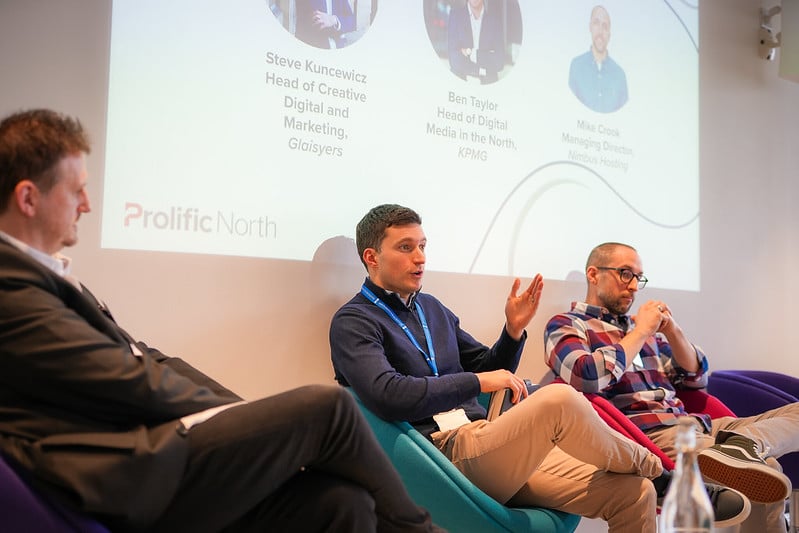
Watch this space for more details about the next Growth to Gold event in Leeds this Autumn.


